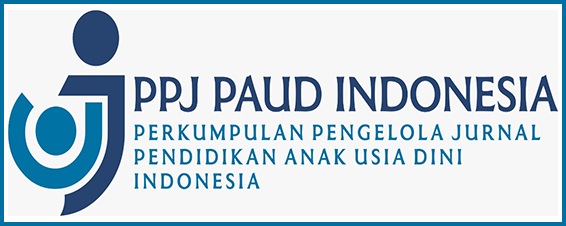The Role of Parents in Watching Generation Alpha Assistance
DOI:
https://doi.org/10.21154/wisdom.v4i2.7455Keywords:
role of parents, alpha, generation showAbstract
When it is important for parents to maintain the spectacle consumed by children. Judging from the data on mobile users, it is very high. Even from the Ministry of Communication and Information, there are 143.26 million people or 54.68 percent of Indonesia's population using the internet with users aged 13-18 years. Meanwhile, other data from the Minister of Communication and Information Rudiantara revealed that as many as 93.52 percent of internet users, 65.34 percent, are aged 9-19 years. While the latest data from BPS describes data for 2022, as many as 33.44% of early childhood aged 0-6 years in Indonesia are already able to use cell phones, 24.96% of early childhood in the country are also able to access the internet. Parents must be wise in addressing the height of Alpha generation children who were indeed born in the digital era. Of course , people know they have challenges in choosing what to watch. This research uses a descriptive qualitative method which is carried out by observing, interviewing parents who find it difficult to choose shows for their children and parents who experience concerns about children's behavior caused by shows that children see such as YouTube. The results of the study show that not all of the alpha generation are negatively affected by viewing on smartphones and smart TVs. There are other positive impacts, especially if parents play an important role in accompanying children's viewing by conducting parenting mediation.References
Attygalle, Udena Ruwindu, Gemunu Hewawitharana, and Champa Jayalakshmie Wijesinghe. 2020. “Migraine, Attention Deficit Hyperactivity Disorder and Screen Time in Children Attending a Sri Lankan Tertiary Care Facility: Are They Associated?” BMC Neurology 20 (1). https://doi.org/10.1186/s12883-020-01855-5.
Balbina, Wawo. 2021. “Intensitas Menggunakan Gadget Mempengaruhi Kualitas Tidur Anak Sekolah.” Jurnal Keperawatan Update 12 (04).
Dewi, Mutiara Sari. 2021. “Media Elektronik Dan Pengawasan Orang Tua Sebagai Pendidikan Anti Kekerasan Anak Usia Dini Dalam Perspektif Psikologi.” Jurnal Pendidikan AURA (Anak Usia Raudhatul Atfhal) 2 (1). https://doi.org/10.37216/aura.v2i1.467.
Dirgantara, Andy, and Alvita Kurniawan. 2015. “Sosialisasi Cara Penanggulangan Perubahan Perilaku Sosial Anak Akibat Bermain Gawai Secara Berlebihan.” Jurnal Telematika 10 (1).
Domingues-Montanari, Sophie. 2017. “Clinical and Psychological Effects of Excessive Screen Time on Children.” Journal of Paediatrics and Child Health. https://doi.org/10.1111/jpc.13462.
Durak, Aykut, and Hüseyin Kaygin. 2020. “Parental Mediation of Young Children’s Internet Use: Adaptation of Parental Mediation Scale and Review of Parental Mediation Based on the Demographic Variables and Digital Data Security Awareness.” Education and Information Technologies 25 (3). https://doi.org/10.1007/s10639-019-10079-1.
Elizabeth, Beatrix, and Dessie Wanda. 2020. “LITERATURE REVIEW: KUALITAS TIDUR DAN KEJADIAN OBESITAS PADA ANAK USIA SEKOLAH.” Jurnal ’Aisyiyah Medika 5 (1). https://doi.org/10.36729/jam.v5i1.316.
Fajariyah, Siti Nurul, Ahmad Suryawan, and Atika Atika. 2018. “Dampak Penggunaan Gawai Terhadap Perkembangan Anak.” Sari Pediatri 20 (2). https://doi.org/10.14238/sp20.2.2018.101-5.
Ilmiah, Jurnal, Mahasiswa Pendidikan, and Anak Usia. 2016. “Model Pengembangan Kecakapan Berbahasa Anak Yang Terlambat Berbicara (Speech Delay)” 1 (1): 36”“45.
Lismanda, Yorita Febry, Mutiara Sari Dewi, and Ika Anggraheni. 2016. “Anti-Violence Education Through Electronic Media and Parent Supervision for Early Childhood in the Perspective of Psychology.” Indonesian Journal of Islamic Early Childhood Education 1 (1). https://doi.org/10.51529/ijiece.v1i1.5.
Mamnuah, Mamnuah, and Suryani Suryani. 2021. “Ketahanan Keluarga Dalam Mengelola Penyalahgunaan Gawai.” Masyarakat Berdaya Dan Inovasi 2 (2). https://doi.org/10.33292/mayadani.v2i2.69.
Moreno-Carmona, Norman DarÃo, Andrés MarÃn-Cortés, VÃctor Hugo Cano-Bedoya, Jorge Armando Sanabria-González, Ãngela MarÃa Jaramillo-Suarez, and Julio César Ossa-Ossa. 2021. “PArental Mediations And Internet Use By Colombian Children And Adolescents.” Interdisciplinaria 38 (2). https://doi.org/10.16888/INTERD.2021.38.2.18.
Rusnali, Ana. 2021. “Alpha Generation and Digital Literacy for the Future of the Nation.” Palakka: Media and Islamic Communication 2 (2).
S Anugera, Yoga, Iga Maliga, and Evi K Gustia. 2020. “Pengaruh Penggunaan Gawai Terhadap Sosio Emosional Anak Usia Pra Sekolah Di Paud As-Salam Kabupaten Sumbawa Besar.” Jurnal Kesehatan Dan Sains 4 (September).
Subakti, Hani, S.Pd., M.Pd, and MPH Prisusanti, Retno dewi, S.ST. 2021. Riset Kualitatif Dan Kuantitatif Dalam Bidang Kesehatan. Media Sains Indonesia.
Sugiyono. 2016. Sugiyono. (2016). Metode Penelitian Kuantitatif, Kualitatif Dan R&D. Bandung. Alfabeta.
Ulfah, Maulidyah. 2020. Digital Parenting: Bagaimana Orang Tua Melindungi Anak-Anak Dari Bahaya Digital? - Maulidya Ulfah, M. Pd.I. - Google Buku. Edu Publisher.
Yunita Lestari, Rosa Nurafifah Surono,. 2022. “PENGARUH PENGGUNAAN GAWAI TERHADAP PERKEMBANGAN SOSIAL-EMOSIONAL ANAK DI MADRASAH IBTIDAIYAH DARUL ILMI KOTA BANJARBARU.” PADARINGAN (Jurnal Pendidikan Sosiologi Antropologi) 4 (1). https://doi.org/10.20527/padaringan.v4i1.4685.







